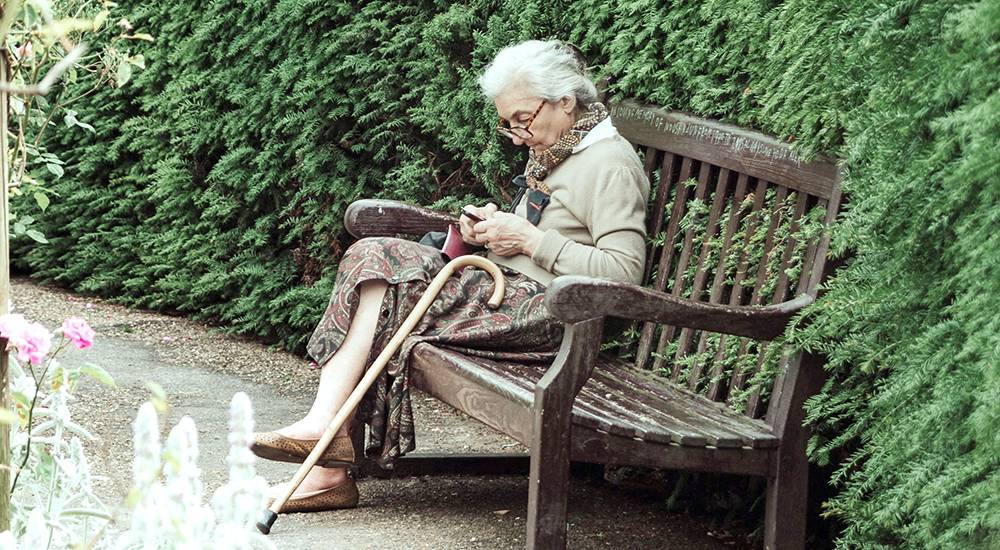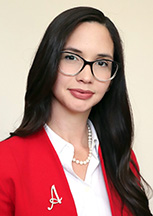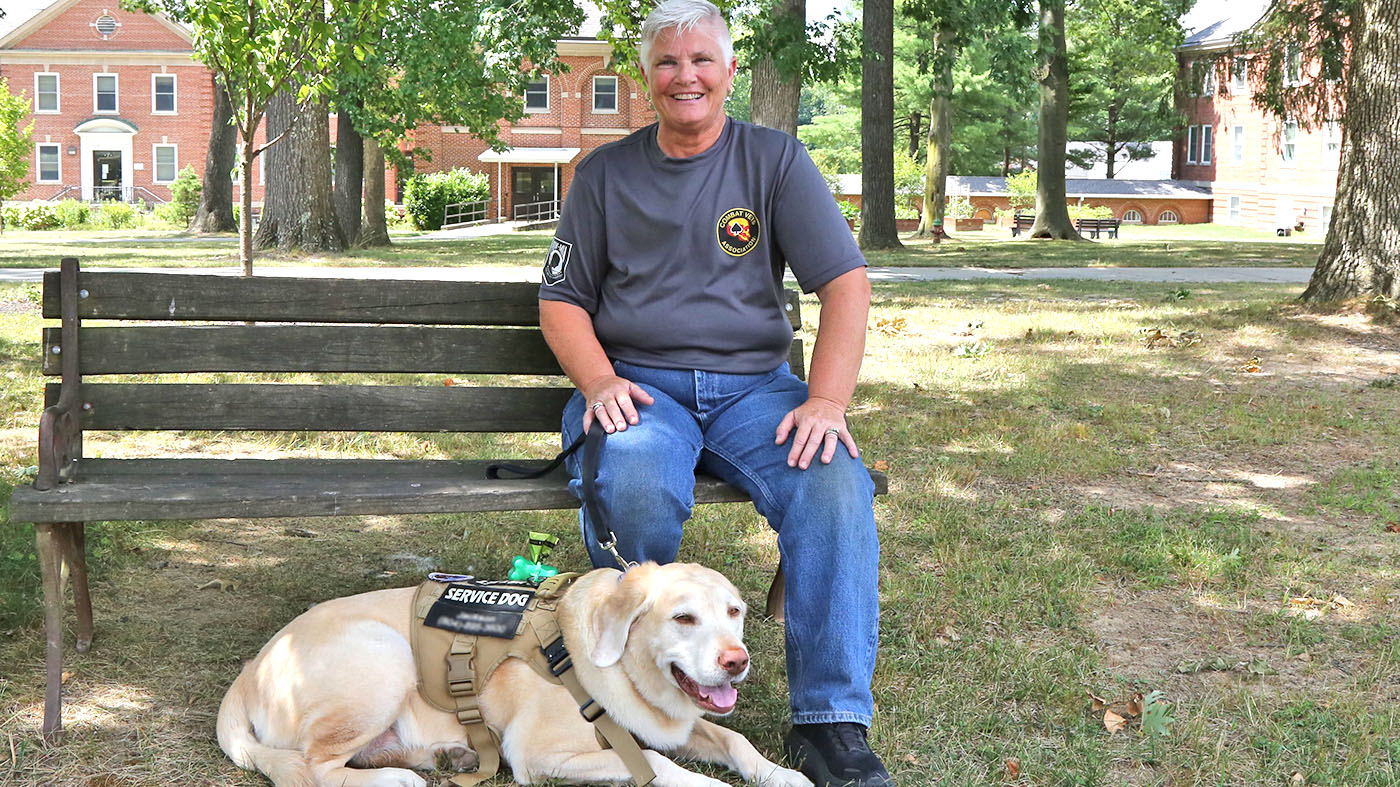For Dr. Ana Alfaro, her recent selection as a fellow for the Health and Aging Policy Fellows Program is right on track for the full circle journey that is her life. She currently serves as a Research Fellow in the Advanced Fellowship Program in Geriatrics at Palo Alto VA.
She is now detailed to the U.S. Senate Special Committee on Aging where she informs the Senate Special Committee on Aging of issues related to the care of aging Americans.
“Becoming a doctor has been molded [onto me] by my parents, who were both engineers in Cuba but were not able to continue their profession here. I can say all of their sacrifices were not in vain,” said Alfaro.
Older Hialeah population underserved
Alfaro grew up in the predominately Spanish-speaking and older community of Hialeah, Florida. There, mental health was not a common conversation, if it was discussed at all. She was able to see how underserved this population was and how little resources were available.
As an undergraduate in psychology, she had initially wanted to be a sport psychologist. She worked at the school gym and had an opportunity to train an 85-year-old woman with osteoporosis. That experience sparked her interest in helping older adults, but it was an internship with a local senator that gave her a taste of policymaking.
“Being born under a communist regime in Cuba, it was a thrilling experience to see people using their voice to make a change in the government. I realized pairing my love for older adults and helping to change policy could impact the lives of people in my community who don’t often get the attention they need,” said Alfaro.
Using technology to increase access
These two experiences set the stage for her career trajectory. Alfaro was a geropsychology intern at Palo Alto VA. After completing her internship, she received a doctorate in clinical psychology.
Alfaro went on to her current position in the Advanced Fellowship Program in Geriatrics at Palo Alto VA Geriatric Research, Education, and Clinical Center (GRECC). She also became a postdoctoral scholar in the Department of Psychiatry and Behavioral Sciences at Stanford University School of Medicine.
Alfaro’s professional interest focuses on increasing access to mental health services to underserved aging populations. One way she is doing this is by leveraging technology as a means of increasing access.
Through a GRECC clinical demonstration program, she teaches older Veterans how to use mental health mobile apps as an innovative means to address their well-being goals.
Opening doors for others to get involved
Alfaro recently received funding to test a six-week telehealth group intervention for older Veterans with problematic drinking. The intervention aims to coach older Veterans on how to use the VA mobile app VetChange for self-management.
She will be on a year-long track with the Health and Aging Policy Fellows Program, which will offer her a unique training opportunity to focus on policy issues, communication skills development and professional networking.
“As a psychologist, I feel like we are not typically trained to be in policy, so I hope I can open doors for others to get involved. It’s important for those interested in this field to use their voice for the common good and that is exactly what I am trying to do,” said Alfaro.
Visit the Health and Aging Policy Fellows Program website to learn more about the program and how Alfaro will be shaping U.S. policy.
Topics in this story
More Stories
Combat Veteran faces the traumatic events of her PTSD during prolonged exposure therapy and looks forward to the days to come.
Bob Jesse Award celebrates the achievements of a VA employee and a team or department that exemplifies innovative practices within VA.
The Medical Foster Home program offers Veterans an alternative to nursing homes.








I have had a disability claim in for a presumptive Agent Orange Viet Nam Era since August 2220. It has been in the decision review phase for a Very Long time. Is this a matter that I could address with this office?
Contact your local veterans organization
“Opening doors for others to get involved”
Dr. Alfaro said: “As a psychologist, I feel like we are not typically trained to be in policy, so I hope I can open doors for others to get involved. It’s important for those interested in this field to use their voice for the common good and that is exactly what I am trying to do.”
As I read this statement I thought: Finally! The Veterans served by the VA are a vast, diverse group of dedicated individuals, many of whom have accomplished remarkable things in their lives. They possess a wealth of knowledge and experience that remains untapped. Seemingly, once a veteran is in the VA system, they become just another patient. A faceless number. Yes, the VA healthcare system has made remarkable progress in patient care over the years, but I believe the system could make great strides in improvement by utilizing the resources that are readily available within the patient population.
Open the doors! Let others get involved. Poll the veteran population within the system as to their background, experience, education, etc. Ask for input on specific questions from those who have experience in those fields. You may not find all input worthy of enactment but permitting ‘others’ (especially older veterans) the opportunity to provide input, will let them/us become a part of the decision-making process. And, you may reap some incredible responses that, when combined with input from your Fellows, might lead to some previously unimagined results.
Veterans are ‘family’ and we would be delighted to get involved and be of assistance.
Congratulations on your Fellowship Dr. Alfaro.
Closing My VA Hospital in Muskogee is a stupid idea . How is this helping older veterans . It is not
I have used VA services for 44 yrs now, GRECC was very much needed.
I don’t like to speak negatively about our older Veteran programs . They have come a long ways. I still remember how my older Veteran friends were treated when I was young. I hope that doesn’t happen to me. History you know.
I have a senior issues that I would like to bring to the VA’s attention. Is there a way I can send a message to the doctor?
That’s a small step in the right direction, however, I as an elderly vet, am upset that the funds go to a person’s program whose purpose is to enhance her ability to affect policy when her attention is obviously 100% on the Urban underserved Veteran. Funds have gone for her program for the alcoholic vet utilizing the internet. Problem is many Rural veterans don’t have access to the internet and if they did they couldn’t afford it! Rural veterans are the most underserved in ALL aspects of VA services and we need a spokesperson at this level who is aware of our unique situation.
I sincerely hope she will receive this message. Thank you